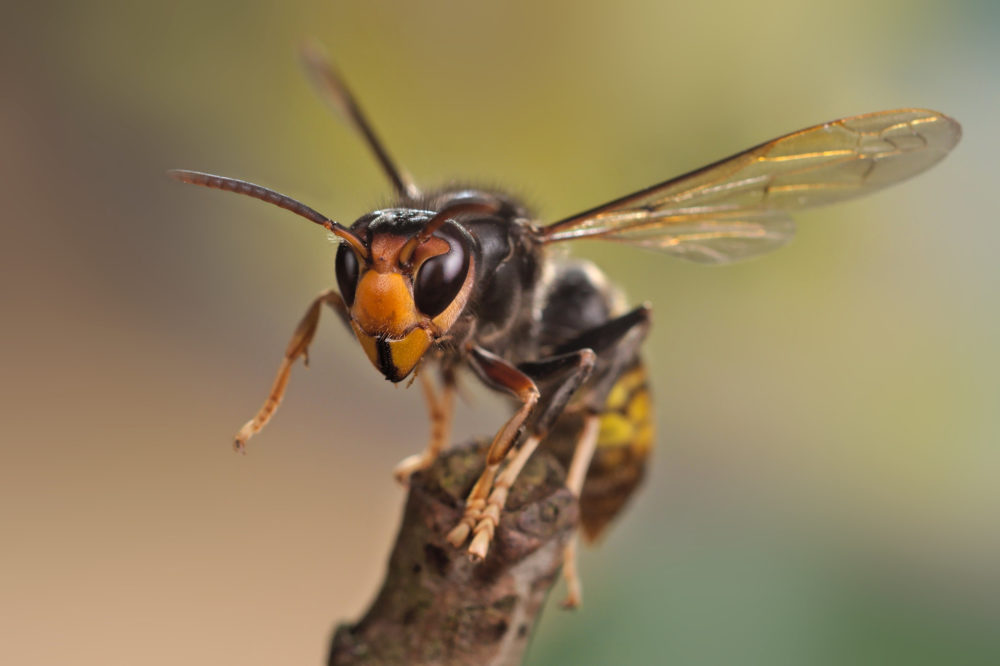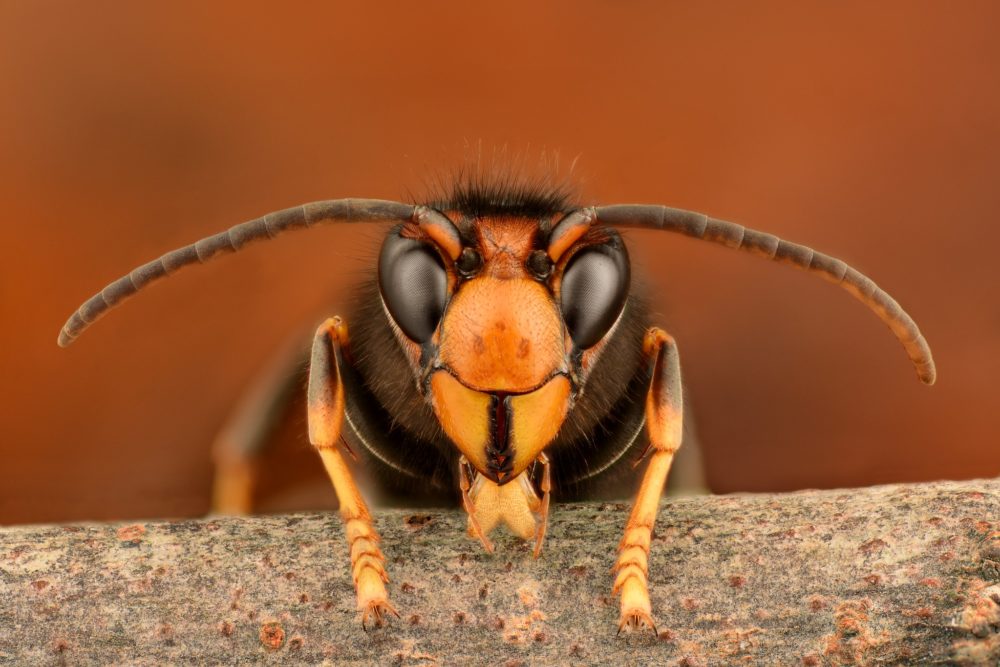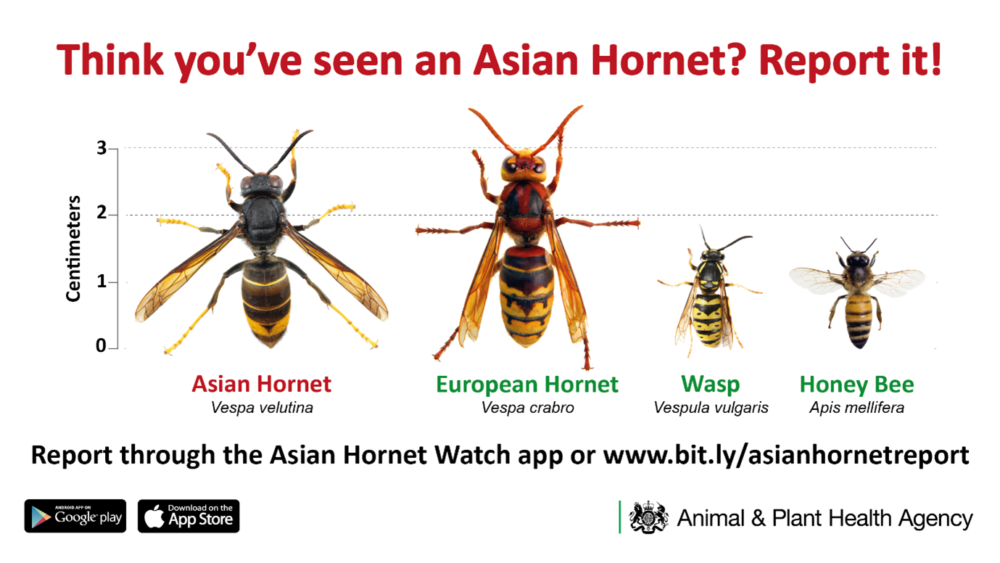Public urged to get to know their insects during Asian Hornet Week

Beekeepers are calling on people to make sure they know how to identify ‘yellow-legged’ Asian hornets, after more than 20,000 false reports of the invasive species last year.
People are being encouraged to better familiarise themselves with the insects in their gardens, as efforts to increase awareness of the ‘yellow-legged’ hornet – also known as the Asian hornet – continue.
To coincide with Asian Hornet Week (2-8 September), the British Beekeepers’ Association (BBKA) has created a simple spotting sheet to help people tell the difference between some of the most common species they might come across, and whether they need to be concerned by what they find.
Vigilance
Asian hornets are a non-native invasive species that are currently being monitored by the Animal and Plant Health Agency’s National Bee Unit (NBU), which delivers bee health programmes in England and Wales on behalf of the Department for Environment, Food & Rural Affairs (Defra) and the Welsh Government.
Any sightings should be reported through the Asian Hornet Watch app, so that nests that have been built can be traced and destroyed to limit the insects’ spread.

More than 1,000 BBKA members have been mobilised to provide localised emergency support to the NBU when a report is made through the app.
However, there are concerns that many people are still unaware of how to identify an Asian hornet correctly, with many confusing them with other species, including the native European hornet.
According to Defra more than 20,000 incorrect reports of Asian hornets were made through the app in 2023, impacting the NBU’s ability to respond to sightings quickly.
The invasive insects are a threat to our ecosystem in the UK, due to their predation of honey bees and other vital pollinators. Last year saw a record number of Asian hornets in the UK, and genetic analysis from earlier this year suggests they may have started overwintering here.
Diane Drinkwater, chair of the BBKA said: “Given the scale of the problem with incorrect reporting last year, it’s more important than ever that as many people as possible know how to tell the difference between Asian hornets and some of the more common, native species they might find in their gardens.
“European hornets, in particular, can be large and noisy, and might give people a bit of a fright, leading many to think they are the ones that need to be reported.
“But they are important pollinators and predators of species that feed on plants and crops – and interactions can often be peaceful if they’re treated with proper respect and caution.
“As with all wasps and hornets, don’t approach nests. Instead, just take a few moments to get to know what Asian hornets look like, and how to report them. This alone could help make a real difference in preventing them from becoming established here”.

Kate Wilson, Head of the Animal Plant & Health Agency’s National Bee Unit, said: “Asian hornets cause significant damage to native pollinators, including our much-loved honey bees. APHA’s National Bee Unit continues to take swift and effective action to stamp out the threat posed by Asian hornets as part of ongoing monitoring and surveillance work to protect our pollinators.
“We encourage the public to remain vigilant this Asian Hornet Week and continue to report sightings to the Asian Hornet Watch app or online”.
Asian hornets can be identified by their distinct markings: they are slightly smaller than the European hornet, with yellow legs, an orange face and dark black/brown body with one yellow/orange stripe on the lower abdomen. Sightings can be reported via the Asian Hornet Watch app (available to download for Android and Apple device), online via irecord (irecord.org.uk/enter-non-native-records) or by emailing ‘alertnonnative@ceh.ac.uk’.
Support our Nation today
For the price of a cup of coffee a month you can help us create an independent, not-for-profit, national news service for the people of Wales, by the people of Wales.







Please be careful, pawb. I have actually been stung by an Asian hornet, They are nasty. My leg swelled up like a balloon and filled with fluid, and the itching and pain were beyond bearable. It took a lot of antibiotics to cure it.